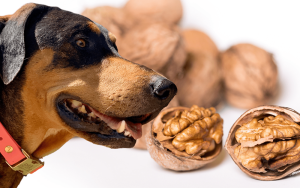Can Cats Eat Bananas? The Complete Guide to Feline Diets and Fruit Safety

Introduction: Can Cats Safely Eat Bananas?
As pet owners, we often look for ways to treat our cats with new and interesting foods, and fruits like bananas may seem like a fun and healthy choice. However, when it comes to feeding your feline companion, it’s important to remember that not all foods
are suitable for them. Cats are obligate carnivores, which means their diet should primarily consist of animal-based protein. But does this mean that cats can’t enjoy the occasional fruit like bananas?
In this article, we’ll explore whether bananas are safe for cats to eat, the potential benefits, risks, and how to serve them if your cat shows interest. We’ll also discuss other fruits that are safe or unsafe for your cat to consume, ensuring you can
make informed decisions about your pet’s diet.
Are Bananas Safe for Cats?
Yes, bananas are generally safe for cats to eat in moderation. They are not toxic to cats, but they do not offer any essential nutrients that a cat needs for optimal health. Cats lack the enzymes required to break down complex carbohydrates effectively,
and their digestive systems are designed to handle animal proteins rather than plant-based foods.
Bananas are rich in potassium, fiber, and vitamins, but these nutrients are not critical to a cat’s dietary requirements. While occasional banana slices can be a safe treat, they should not make up a significant portion of your cat’s diet.
Nutritional Value of Bananas for Cats
Bananas are loaded with nutrients that humans enjoy, but cats are not as reliant on these nutrients. Here’s a breakdown of the key components of a banana and their relevance to a cat’s health:
- Potassium: Potassium is crucial for muscle and nerve function. While humans benefit from this nutrient, cats typically get enough potassium from their regular meat-based diet, and excess potassium could potentially cause issues
in cats with kidney disease. - Fiber: Bananas contain fiber, which can aid digestion. However, cats have a shorter digestive tract than humans, meaning they don’t require as much fiber for digestion.
- Vitamins: Bananas are a good source of vitamin C and vitamin B6, but cats produce their own vitamin C in the liver, and vitamin B6 is usually abundant in their regular protein-based diet.
- Carbohydrates: Bananas are carbohydrate-rich. Cats are obligate carnivores, which means their bodies don’t efficiently process carbohydrates. High-carb foods can upset their stomach or lead to weight gain over time.
Potential Health Benefits of Bananas for Cats
Although bananas are not an essential part of a cat’s diet, there are some minor benefits to feeding them the occasional banana treat:
- Hydration: Bananas have a high water content, which can help keep your cat hydrated, especially if your cat is reluctant to drink water.
- Digestive Aid: The fiber in bananas might help with occasional digestive issues such as constipation, though it should not be relied upon as a primary treatment.
- Mental Stimulation: Introducing a new food like banana can serve as a form of enrichment for your cat, giving them a new texture and flavor to explore. This can help combat boredom and encourage natural curiosity.
Risks of Feeding Bananas to Cats
While bananas are safe for cats in small amounts, there are a few risks and concerns to keep in mind:
- Sugar Content: Bananas contain natural sugars, which may be too much for some cats. High sugar intake can lead to weight gain, obesity, and even diabetes, particularly in indoor cats who may not get enough exercise.
- Digestive Upset: Since cats have difficulty digesting carbohydrates and fruits, giving them too much banana can lead to gastrointestinal problems such as diarrhea or vomiting.
- Choking Hazard: Bananas, especially if not cut into small pieces, can be a choking hazard for cats. Ensure that any banana pieces are appropriately sized to avoid risk.
- Allergies: Though rare, some cats may develop an allergic reaction to bananas. Symptoms may include itching, swelling, or gastrointestinal upset. If you notice any adverse effects, stop feeding bananas immediately and consult
your veterinarian. - Not a Substitute for Protein: Bananas do not provide the protein or fat that cats need to thrive. Over-relying on non-meat-based foods like bananas could lead to nutritional imbalances.
How to Safely Feed Bananas to Cats
If you’ve decided to treat your cat to some banana, here are some helpful tips to ensure it’s done safely:
- Offer in Small Quantities: Start by offering a small amount of banana to see how your cat reacts. A slice or two is enough. Avoid offering too much banana at once to prevent digestive upset.
- Cut into Small Pieces: Bananas should be cut into small, bite-sized pieces to prevent choking. Avoid offering large chunks or the peel, which can be difficult for cats to digest.
- Peel the Banana: Never give your cat the peel of a banana. While it’s not toxic, banana peels are tough and difficult to digest, and they could potentially cause a blockage in your cat’s digestive tract.
- Watch for Signs of Allergic Reaction: After giving your cat a small amount of banana, monitor them for any signs of digestive upset or allergic reactions, such as vomiting, diarrhea, or lethargy. If any symptoms occur, consult
your veterinarian immediately.
Alternatives to Bananas for Cats
While bananas are not harmful in small amounts, there are other fruits and treats that are generally safer and more appropriate for cats:
- Blueberries: Blueberries are low in sugar and antioxidants, making them a great treat for cats in small quantities.
- Strawberries: Strawberries are another fruit that can be offered in moderation, but be sure to remove the stems and wash them thoroughly.
- Cantaloupe: Many cats enjoy the taste of cantaloupe, which is hydrating and generally safe in small portions. Just be sure to remove the seeds and rind before offering it to your cat.
- Watermelon: Watermelon is another hydrating fruit that can be a good occasional treat. Ensure the seeds are removed, as they can pose a choking hazard.






